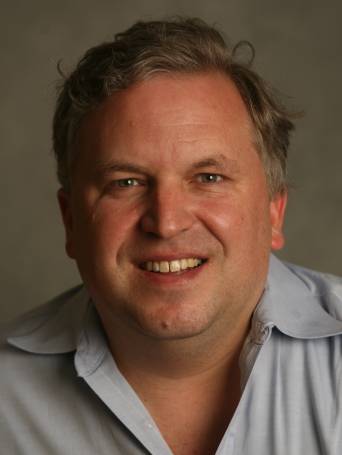International Development Policy & Management Specialization
Empower global change through expert policy and management skills.
Program Overview
A career in international development, and other global fields, requires a solid foundation in international institutions, economics, and politics.
For those with more defined career goals, deeper knowledge in specific areas is also crucial. NYU Wagner's MPA-PNP International Development specialization addresses diverse interests through courses in economic growth and inequality, organizational management, international finance, environmental sustainability, human rights, global health, and governance.
Unlock Your Potential with the International Development Specialization
The international development specialization opens doors to a diverse range of career opportunities, from global consulting to cross-border project management.
Leverage your time at NYU to tap into emerging markets and drive impactful initiatives on a global scale. Graduates of this program have gone on to earn titles such as:
- Policy Analyst
- Development Officer
- Humanitarian Affairs Specialist
- International Program Manager
- Program and Policy Evaluator
- Communications Staff
- Policy/Legislative Director
- Partnerships Manager
- Development Officer/Fundraiser
Skills You’ll Gain in the International Development Specialization
Develop a versatile skill set that helps you drive meaningful change. Our alumni apply these key competencies to address the most pressing global challenges:
Implement strategies to drive international initiatives and address complex global challenges.
Effectively interact with people from across the globe, with varying cultural backgrounds, to foster understanding and collaboration.
Conduct thorough research to inform better decision-making and improve outcomes for any project.
Examine and address policies that support global challenges and sustainable development.
Coordinate projects on an international scale, ensuring that logistics are successfully executed and align with the main objectives.
What Our Graduates Say
Shawn Sippin (MPA 2016)
Humanitarian Assistance Advisor to the Military
“NYU Wagner’s international specialization may be smaller compared to other programs, but its potential is significant for students eager to launch or advance a career in international public service. During my first year, I attended Wagner’s career fair, where I connected with an international non-governmental organization (INGO) that hired me as an intern at their NYC headquarters less than two weeks later. By the end of that spring semester, I was invited to join their field team in South Sudan. Before enrolling at Wagner, I didn’t know anyone in the humanitarian field, but just two semesters in, I was working alongside seasoned humanitarians in one of the world’s most challenging crises. That internship led to my capstone project and a paid position with the same INGO over winter break, leading to my first full-time role in South Sudan after graduation."
Curriculum Overview
Our 45-credit program includes a blend of foundational courses, specializations, electives, and a capstone project. This comprehensive curriculum provides you with the critical skills and knowledge needed for leadership in public and nonprofit management and policy.
Learn More About the Curriculum
Program Requirements
Below is an overview of the required coursework for the international development specialization. For detailed information, view the program checksheet.
Students must complete the following core courses:
Students must complete the following specialization courses:
PADM-GP.2201, Institutions, Governance, and International Development
PADM-GP.2202, Politics of International Development
PADM-GP.2203, Economics of International Development
The capstone program, which is a year-long consulting or research project, places you in a real-world setting to solve a problem or conduct an analysis for a client organization.
All students must complete the following courses in conjunction with their capstone experience.
Students must complete the following courses:
CAP-GP.3226 & 3227 Capstone: Advanced Projects in International Development Policy and Management I & II or CAP-GP 3148 & 3149 Capstone: Advanced Research Projects in Quantitative Analysis I & II
Focus Areas
These are optional clusters of courses designed to guide your elective choices.
Selecting electives within specialized focus areas allows you to deepen your expertise and develop more advanced skills. To gain in-depth knowledge in a focus area, we recommend completing nine credits. Alternatively, you can opt for a broader approach by choosing electives across different focus areas.
Global relationships are being reshaped by economic growth together with widening inequalities. Building from PADM-GP 2203 Economics of International Development, these courses explore growth and inequality among countries and regions.
Courses in this focal area draw on theory and practice from organizational and management studies to explore the human, behavioral, functional, and operational dynamics of organizations in a global context, or to focus on development goals within an international political economy. Clusters allow students to concentrate on particular entry points or to mix and match in ways that help address career preferences.
These courses draw on theory and practice from public and social finance, as well as social impact investment. Many have some international focus and all have international relevance. There are two clusters, one focusing on public sector finance and the other covering social enterprises and social impact investment.
Courses in this focal area hone in on challenges of operating in fragile, conflict, and disaster settings—supporting advocacy efforts to advance health, human rights, and humanitarian concerns—and examine the contextual factors that shape operational and policy success.
In addition to the specialized courses mentioned, you have the opportunity to broaden your skills by selecting from a range of offerings, including those from school-wide focus areas or a different specialization. As a student specializing in international development, you can consider Environment and Climate Change; Nonprofit and Government Organizations; Philanthropy and Fundraising; Social Justice and Democracy; and more.
Additional MPA-PNP Degree Specializations
Why Choose NYU Wagner?
Your chosen MPA program sets the foundation for a successful career in public and nonprofit management and policy. Our interdisciplinary approach, expert faculty, and prime New York City location offer unparalleled learning, growth, and professional development opportunities. Ranked #8 in international and global policy graduate programs by U.S. News and World Report, NYU Wagner stands out for its commitment to shaping future leaders in public service.
Here’s what sets us apart:
Convenience & Flexibility
Our program offers flexible scheduling for both full-time and part-time students, with start terms available in both the Fall and Spring. Full-time students who begin in the Fall can complete the program in as little as two years. Part-time students typically finish in three to four years.
Distinguished Faculty
Learn from premier scholars in a variety of disciplines, including economics, finance, management, political science, law, planning, and healthcare. These highly-accomplished industry leaders will prepare you to effectively address issues across sectors and policy arenas.
Real-World Experience
A year-long capstone project is the pinnacle of your graduate experience, offering an opportunity to apply your skills and knowledge to real-world challenges. Collaborating with peers and expert faculty mentors, you'll take on pressing issues facing communities both locally and globally.
Tangible Career Outcomes
MPA graduates work in government agencies, nonprofits, international organizations, corporate social responsibility departments, and a multitude of other sectors. That includes organizations such as the American Red Cross, APCO Worldwide, Ernst & Young, Everytown for Gun Safety, NY Green Bank, United Nations, and the U.S. House of Representatives.
International Development Faculty
How to Apply
Ready to take the next step? Explore the application process, admissions criteria, and deadlines for our MPA-PNP International Development Specialization.
Submit your online application, including two essays (with an optional video essay), your resume or curriculum vitae, two letters of recommendation from academic or professional settings, transcripts from colleges or universities, and standardized test scores. You’ll also need to submit the $85 application fee and review any requirements specific to international applicants. To make sure you have everything you need, we created a complete application checklist.
We invite students from all majors and backgrounds to apply who demonstrate aptitude in both quantitative and qualitative coursework, along with strong written and verbal communication skills. We value a deep commitment to public service, whether shown through coursework, work experience, or volunteer efforts, and we encourage career changers to explore our program, as well. Our admissions process aims to identify candidates with the potential to make a significant impact, regardless of scope, and who value professional experience from all sectors to enrich the learning environment.
While we prefer applicants to have about two years of relevant experience, such as full-time, part-time, internship, or volunteer work, it is not a requirement for admission. Students without two years of full-time, degree-relevant experience will participate in the Professional Experience Requirement (PER) to enhance their understanding of the public service field.
Yes, we offer a number of merit-based scholarships at NYU Wagner. All part-time and full-time students are considered.
Tuition & Financial Aid
Find out detailed information about the cost of attendance, and access resources to finance your education—including federal loan programs and merit-based fellowships, scholarships, and assistantships.
Tuition is calculated on a per-credit basis. Your tuition costs are customized based on the total number of credits you enroll in each term.
Per-Credit Tuition Costs (2024-2025)
| FALL 2024 | Spring 2025 | Summer 2025 | |
|---|---|---|---|
Tuition per point/credit |
$2,395 |
$2,395 |
$2,395 |
PER-SEMESTER TUITION COSTS (2024-2025)
| Credits | Tuition |
|---|---|
6 credits |
$14,370 |
9 credits |
$21,555 |
12 credits |
$28,740 |
View the tuition and fee calculator at the NYU Bursar's website.
*For Executive Masters students, fees also include a one-time $1,758 EMPA program fee. The program fee will be split across two semesters:
- EXEC-GP 100 = $879 (Fall 2024)
- EXEC-GP 101 = $879 (Spring 2025)
**A typical part-time student enrolls in 6 credits per fall and spring semester each academic year. A typical full-time student enrolls in 12 credits per fall and spring semester each academic year.
|
|
||
|---|---|---|---|
Housing |
$23,588 |
||
Food |
$6,450 |
||
Books |
$1,510 |
||
Transportation |
$2,342 |
||
Personal Expenses |
$3,000 |
||
Student Basic Health Insurance** |
$4,346 |
||
ESTIMATED TOTAL |
$41,236 |
*Please note that these expenses, based on 2024-2025 rates, are discretionary for students and are included here to assist you in planning your budget.
**Based on Basic Plan. For more information on student health insurance options, including premiums, enrollment, and waivers, please visit the NYU Student Health Insurance website.
Most NYU Wagner students fund their studies through a variety of means—private or federal student loans, college work-study, or student employment. You can seek out supplementary funding by applying to external merit-based or need-based scholarship programs that award students pursuing a degree program in public service.
Federal Student Loans
Federal student loan programs offer low-interest student loan options for US Citizens and Permanent Residents. International students are not eligible for federal financial aid. Graduate financial aid programs available to students who study in New York State include:
- Federal Direct Unsubsidized Loans
- Federal Grad/Professional Plus Loans
- Federal Work Study
Compare the different types of federal loan programs.
How to Apply
If you are a US Citizen or Permanent Resident and you wish to be considered for need-based federal financial aid, you must complete the current Free Application for Federal Student Aid (FAFSA). List "New York University" as a recipient and include our federal school code number 002785. Deadline: You should submit the FAFSA no later than October 1 for spring-start students or February 1 for fall-start students. While the FAFSA is accepted after these deadlines, late submission will cause a delay in the determination (and notification) of your aid eligibility (but it does not impact the amount of funding for which you are eligibile).
Private Loan Programs
A variety of additional, private (non-federal) alternative loans are also available from individual lending institutions. Please think carefully about your obligations as a borrower before pursuing any educational loan. Consider your educational investment at NYU, as well as your long-term financial commitments when borrowing.
See a reference list of private lenders.
Frequently Asked Questions
Research opportunities such as analyzing global case studies, conducting field research in international markets, and working on collaborative projects with global organizations are all possible. Students also have chances to pursue independent research initiatives and participate in international conferences to present their findings.
Students are required to enroll in courses that discuss important topics, such as politics and economics of international development, statistical methods, microeconomics, and more to ensure a well-rounded educational experience.
An MPA-PNP with a specialization in International Development opens the door to a wide range of careers. Graduates often pursue roles such as policy analyst, evaluating and influencing development policies; or development officer, focusing on fundraising and resource mobilization for international projects. Other dynamic career paths include humanitarian affairs specialist, international program manager, and community relations manager.


